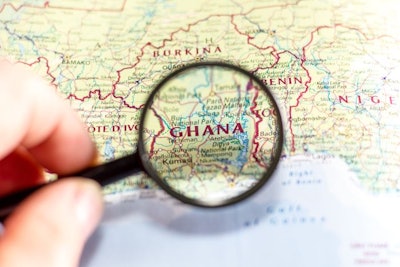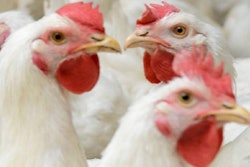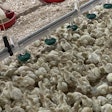
The trend of poultry farms ceasing operations in Ghana is frustrating the country’s plan to increase its self-sufficiency in chicken production. In addition to steeply rising prices and shortages of feed ingredients, avian influenza remains a threat to the nation’s flocks.
The latest Ghanaian poultry farm owner to announce the closure of his premises is Samuel Ofuso-Ampofo. He is the National Chairman of the National Democratic Congress — one of the country’s leading political parties.
In a recent report in Ghana Web, Ofuso-Ampofo said he is making no profit on his egg business. Recent rises in feed and transportation costs mean he makes a loss on egg sales. Announcing he will be closing his 25-year poultry operation, he called on the country’s current president, Nana Akufo-Addo, to take urgent action to maintain domestic poultry production.
Around half of Ghana’s poultry farms have already closed since last year, according to the National Poultry Association.
If no action is taken to support the sector, poultry farm numbers may be down to just 10% of that number by the end of 2022, said Association member Yiadom Boakye.
At the start of this month, Ghana Web reported his call for the Ministry of Food and Agriculture to take action.
Among the key challenges he identified is the illegal exportation of soybeans and grains from Ghana, according to Boakye. Domestic production of these feed ingredients is subsidized by the Ghanaian government. In order to obtain the crop byproducts used to feed poultry, Ghana has to import these materials at further inflated prices, he said.
As prices of all commodities rise on global markets as a result of the disruption caused by Russia’s invasion of Ukraine, traders are taking advantage of the market situation, he said. Boakye added that recent investigations reveal smuggling of soybeans and grains out of the country into Togo, Nigeria and Benin.
Ghana restricts exports of key commodities
At the end of last month, Ghana’s government extended restrictions on the export of corn and soybeans for a further three months.
This action gave the temporary ban a total duration of six months, according to the USDA Foreign Agricultural Service (FAS). The aim of the extension was to maintain supplies of these home-grown commodities — plus additionally rice — to overcome anticipated shortages until September of this year. As well as the war in Ukraine, Ghana’s latest harvest was lower than usual.
For Ghana, a complete ban on outgoing trade is not permitted under the Economic Community of West African States (ECOWAS) Protocol. This regional agreement covers the free movement of products and people. Under the directive, Ghana can only export these commodities to Niger, Sierra Leone, and the Republic of Congo in Africa — as well as a few other more distant destinations.
Government aims to boost chicken self-sufficiency in Ghana
Already at the end of last year, Ghanaian farmers were struggling to maintain chicken production due to high feed prices.
According to FAS, domestic production met less than 20% of the country’s requirements for chicken. For 2020, this source put Ghana’s chicken meat consumption at 353,000 metric tons (mt). Of this, 58,000mt was locally produced, and 295,000mt was imported.
For the 12 months starting in January 2022, FAS forecast that total consumption would rise to 460,000mt, while Ghanaian output was expected at that time to expand to just 60,000mt.
While the government announced plans to offer loans of US$87 million on favorable terms to expand Ghana’s chicken production, this ambition now looks unlikely to be achieved in the short term.
Continued threat to Ghanaian poultry from avian flu
In the past eight months, Ghana has been among the African states reporting cases of highly pathogenic avian influenza (HPAI) in poultry.
According to the latest update from the United Nations’ Food and Agriculture Organization (FAO), 82 outbreaks were confirmed in this nation’s domestic poultry between October of 2021 and February 11 this year. Over this period, outbreaks linked to the H5N1 HPAI virus serotype were widely distributed across eight of Ghana’s 16 states.
Earlier this month, a senior official in the country said that there had been 102 outbreaks in poultry since the start of the year, reported Modern Ghana.
According to the Greater Accra regional veterinarian, the disease continues to circulate in the country. As a result, he urged poultry farmers to maintain biosecurity precautions.
During an official tour of the country’s poultry farms with various participants including the FAO, he said that all bird owners affected by earlier HPAI outbreaks have received compensation. These payments were for poultry culled as a result of HPAI from 2015 to the end of 2021. The source reported the official’s undertaking to commence compensation for more recent outbreaks soon.
















